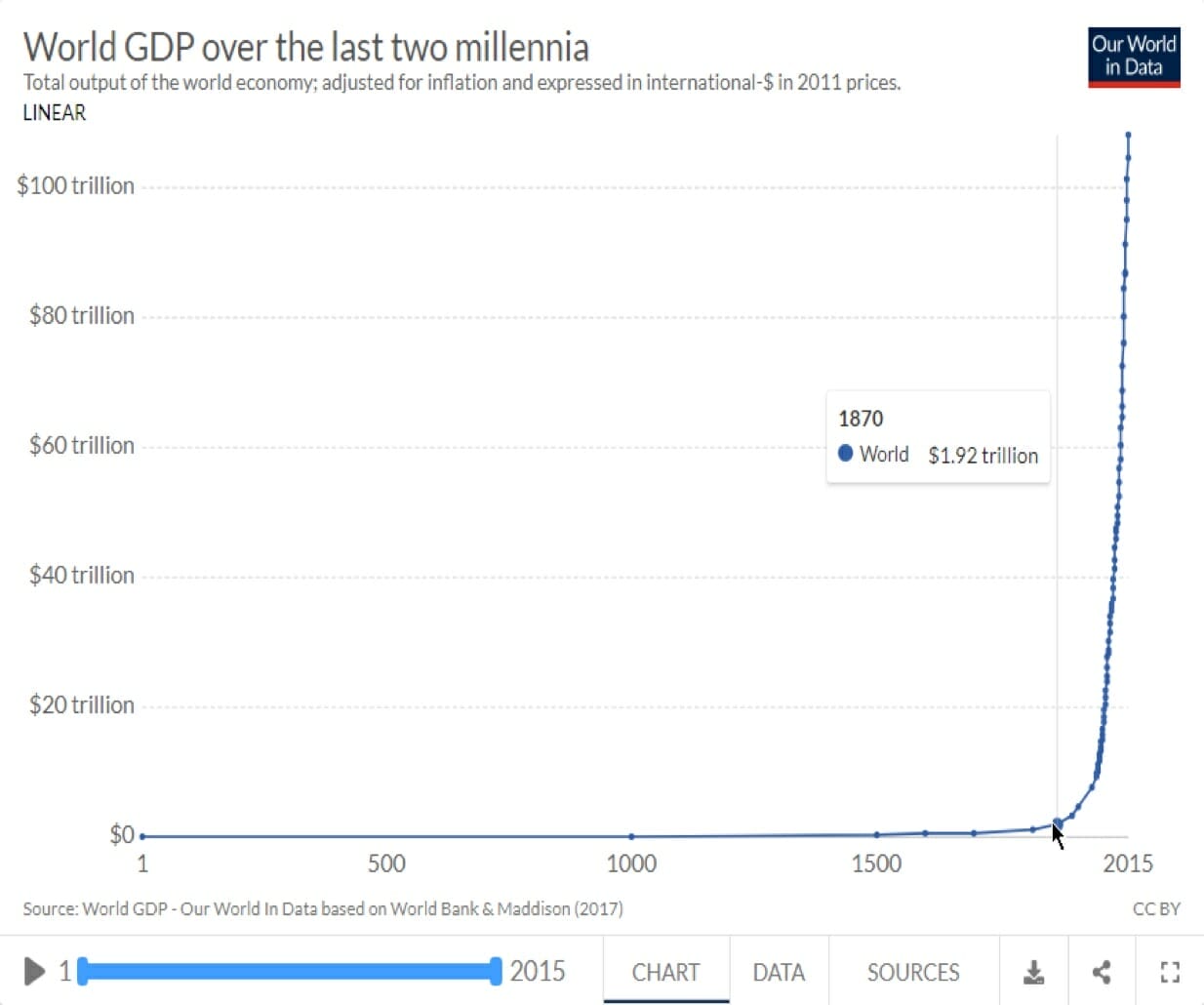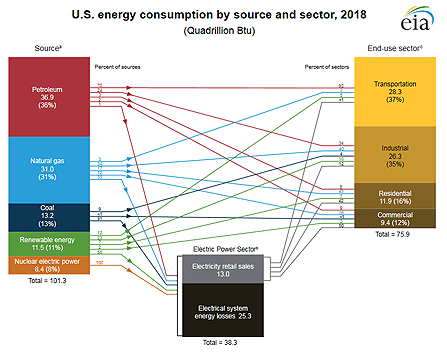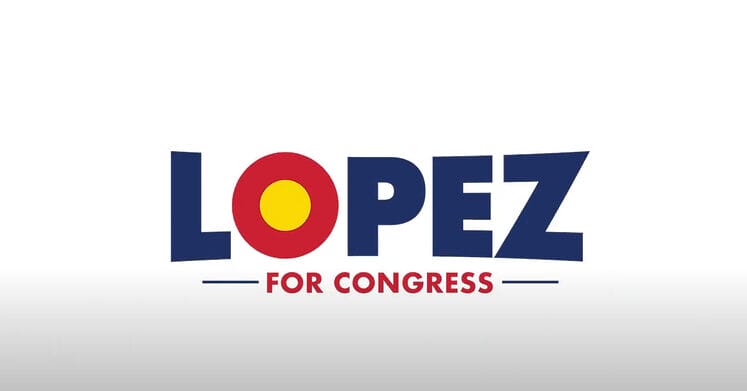It’s the year 2019. We are living at the pinnacle of Western Civilization. As the largest global economy, America is at the pinnacle of the pinnacle. Nowhere, at no time, have human beings ever lived in such comfort, plenty and ease. Yes, there are problems – many of them self-inflicted – but on the whole, we have it far better than any cohort of human beings before us.
This life, this prosperity, is due to three things:
- Free market capitalism
- Limited government
- Fossil Fuels
The foundation upon which all of these rest is Reason, i.e. the idea that the universe is knowable, discoverable and bound by a set of rules which are capable of being discerned by humans.
Let’s take a look at each pillar. I have listed them in an order, but they are all equally important, and the first two especially could not exist without the other.
Free Market Capitalism
What is “capitalism”? Because there are so many definitions, I will offer mine:
Capitalism describes that socio-economic system which is based on the protection of private property rights; free exchanges between individuals and individual (or corporate) ownership of the means of production. Capitalism includes the freedom for individuals to succeed or fail. The individual owns the fruits of success and pays the costs of failure. Capitalism includes the idea of “creative destruction”, where old, inefficient and outmoded products, services and companies go out of existence in order to make way for new, innovative and more efficient products, services and companies. Capitalism is the only moral socio-economic system that has proven to promote human flourishing through the course of history.
In this day and age, there are two competing visions of the best socio-economic system for promoting human life. These two competing visions are
1) socialism, in all its variants including full-scale communism (See my essay On Socialism for more), and
2) free-market capitalism. The United States of the 19th and very early 20th centuries was an example of explosive economic growth enabled and nurtured by free markets and limited government. Hong Kong under British rule or modern-day Singapore are additional examples of largely unrestricted laissez-faire capitalism.
We are fortunate to have real world results to evaluate the success or failure of each system. Those results are crystal clear and obvious to the objective eye. Socialism, in ANY variant, results in rivers of blood, mountains of dead bodies, poverty, misery and despair. Under socialism, people are equal – equally miserable. Literally hundreds of millions of people were killed by socialist governments in the twentieth century, and even today we see the suffering and misery of people living in modern socialist states like North Korea and Cuba.
Capitalism, on the other hand, has created the largest, most prosperous economy in human history – that of the United States – and has lifted more people from poverty worldwide than any other economic system. The successes of capitalism are many and self-evident.
The alleged “failures” of capitalism are not due to inherent flaws in the system but to government interference in free markets by placing artificial constraints on transactions or by artificially tampering with supply and demand. So-called “crony capitalism” is not the result of capitalism itself, but of government interference in free markets, lack of free exchange and through the implementation of force on one or both sides of transactions. For this reason, the term “crony statism” is more appropriate.
Some “faults”, such as the effects of creative destruction, are not really faults at all. Yes, they are difficult for those people who experience them, but creative destruction is an ultimately beneficial part of the capitalist system.
Other perceived faults, such as income inequality, aren’t faults either. The more productive a person is – the more value they create – the wealthier they will be. Absent force, people are free to achieve as much as they can, and money isn’t the only measure of a successful life.
Limited Government
The political geniuses who convened in Philadelphia in the summer of 1787 created a system of government featuring a document that defined the power structure in the United States: powers not expressly granted to the federal government are reserved to the states or the people. The people give power to the government, and in the United States, the people are sovereign.
The federal government created by the United States Constitution was small, limited and constrained to certain functions. It was largely funded by tariffs, excise taxes, and land sales. This was by design and in the 19th century America saw the most explosive economic growth in human history. Between 1800 and the eve of the Civil War in 1860, U.S. per-capita Gross Domestic Product (GDP) grew by 73%. During this time, the federal government was still largely within its constitutional limits.
From the end of the Civil War to the eve of World War Two, per-capita GDP grew by a further 106%. That era was called “The Triumph of Capitalism” in the book Capitalism in America: A History by Alan Greenspan and Adrian Wooldridge.
Alas, with the advent of progressivism after about 1890, our limited government was doomed. The year 1913 saw two truly terrible constitutional amendments pass that have facilitated the growth of the regulatory/administrative state we have today: the 16th Amendment which introduced the personal income tax (which started at a top rate of 7% in 1913 and now has a top rate of 37%); and the 17th Amendment which allows for the direct election of United States senators and disenfranchised the state governments by depriving them of their oversight function of the federal government.
Another great example of how limited government is a precondition for economic growth and prosperity is the former British colony of Hong Kong. After China ceded the territory of Hong Kong to the British Empire in 1842, the British installed a colonial government consisting of a governor, a court system, and little else. In the years that followed, based on global trade centered on Asia, Hong Kong grew to a land of 7.4 million people, with 2016 per-capita income of $48,330. Hong Kong today is classified as an “alpha world city” – meaning that it is a primary node in the global economic network.

In Hong Kong, people were free to succeed beyond their wildest dreams or fail abysmally. The unrest we are seeing in Hong Kong today is due to the Chinese government, which after all is a communist tyranny, trying to impose laws that limit Hong Kong’s freedom.
Within the fifty United States we have varying degrees of limited government and we can see that states with more limited government (defined as lower tax states) do better economically than states with higher taxes and bigger government. This point is illustrated brilliantly by authors Arthur Laffer et al in their book An Inquiry into the Nature and Causes of the Wealth of States: How Taxes, Energy, and Worker Freedom Change Everything. One need look no further than the comparison between the progressive “paradise” of California – a high tax, high regulatory burden state and Texas, a zero income tax and still relatively free state. In every respect, Texas outperforms California and more people move from California to Texas than the other way around.
By every measure of human progress – GDP, life expectancy, infant mortality, disposable income, poverty and hunger – the quality of human life on this planet has improved exponentially as societies have embraced free-market capitalism. China, while still a communist country, has experienced economic growth via Hong Kong and by embracing some market reforms. Countries elsewhere in the world have experienced improved economic growth after embracing capitalism. The so-called “democratic socialist” Nordic countries have capitalist economies with welfare state benefits bolted on. They are not and never have been “socialist”, and they are starting to roll back some of their state benefits as their economies are stagnating.
The graph below shows world Gross Domestic Product (GDP) from 1 A.D. until 2015. The sharp upturn in GDP, which is one excellent measure of human flourishing, is the result of the confluence of two events: the Industrial Revolution and the increasing use of fossil fuels.

Fossil Fuels
So-called “fossil fuels” – primarily oil, natural gas and natural gas liquids have been in use by humans since ancient times. But until the dawn of the twentieth century, humans primarily used biomass fuels for heating, cooking and the nascent steam engine, mostly wood and animal dung. Early-stage modern technology used coal for fuel. Indeed, in parts of Africa today, people spend a good portion of their days gathering fuels of this type – wood and animal waste – to burn in open-air stoves in their homes.
The fact is, before the advent of our modern industrial society, life was harsh, brutal and short. People spent a considerable portion of their days in securing the necessities of life: food, shelter, clothing, and energy. As fossil fuel-powered technologies became more prevalent, people recognized their life-enhancing value and were willing to put up with the externalities.
I wrote about this in a blog post entitled Why I Support Fossil Fuels:
“As Alex Epstein points out in his excellent book The Moral Case for Fossil Fuels: “The people who went through the industrial revolution had a perspective that is hard for us to recapture but is essential for us to get: an understanding of just how vital it is for us to have access to cheap, plentiful, reliable energy, because the more we have, the more ability we have, and the less we have, the more we see just how weak we are without high-energy machines.” [Emphasis mine]
Epstein then goes on to cite a 19th century commentator on how valuable coal was to English society and notes that “This was at a time when, because of early-stage technology, coal pollution was far, far worse than, say, even China experiences today – and yet these commentators don’t even mention it; that’s how valuable they saw energy as being to their very ability to survive. Nothing was more important.”
In other words, coal was so important in the 19th century that they were willing to put up with the pollution that accompanied it. Fiction literature abounds with tales of “London fog” and the darkness in the city that accompanied it.”
All of the attributes of modern life are made possible by fossil fuels. The cars we drive and the planes we fly. The public transportation we use. Even electric cars are powered by electricity largely generated from coal. Hot and cold running water, waste disposal, heat in winter and air conditioning in summer: made possible by fossil fuels. The fresh foods you buy in the store along with your frozen dinner are made possible by the transportation sector, which uses fossil fuels. The electricity and the electronic devices climate activists use to advocate for banning fossil fuels are powered by…fossil fuels. The clothes you wear and the plastics you use are derived from fossil fuels. Indeed, it’s difficult to identify anything in modern life that is not made possible by or composed of fossil fuels.
To imagine a life without fossil fuels, imagine going camping without your car…or your cooler full of food and beer…or your propane-powered camping stove…or your sleeping bag…or your tent…or even your clothing. You must survive on what you can forage and hunt in your immediate environment, burning wood for fuel and warmth. How long do you think you’ll last?
As the graph below shows, so-called “renewable energy” only accounts for 11% of our total energy sources in the United States. Thinking that we can transform that into 100% within a few decades is dangerously naïve and unrealistic and cannot be accomplished without significant economic disruption.
Instead of a curse, fossil fuels are a blessing and a boon to humanity. Yes, there are costs and externalities, but those are far outweighed by the benefits, and they can be managed and mitigated. To deny the benefits of fossil fuels is to deny reality. Don’t believe me? Turn off your natural gas next time the temperature dips below freezing. Post of video of yourself doing so.
It is clear, then, that our modern life, with all of its amazing benefits and luxuries, rests on the three pillars of free-market capitalism, limited government, and fossil fuels.
Progressives Want To Tear It All Down
While they personally benefit in every way from the advantages of modern life, the modern “progressive” movement – which traces its roots to the late 1800s and the aftermath of the Civil War – hates the pillars of modern life and wants to tear it all down.
They hate capitalism and embrace socialism, even though socialism has a DOCUMENTED HISTORY of failure and death. Every socialist/communist system that exists or has ever existed has resulted in economic stagnation, repression, and mountains of dead bodies. People do everything they can to escape socialist countries, or if they cannot, they hunker down and hope for the best. Nowhere is this more starkly demonstrated in today’s news than the unrest in Hong Kong. They are doing everything they can to resist the encroaching tyranny of the Chinese government.
Bernie Sanders, a septuagenarian socialist who, despite a lifelong record of mediocrity is still a millionaire (thanks to capitalism), is a darling of the uneducated young and the unrealistically idealistic. Even though Bernie is personally wealthy (three homes and a net worth of $2.5 million) like his rival Elizabeth Warren (net worth of $12 million) he rails against big companies, “the rich” and capitalism. He openly and honestly admits that the government programs and benefits he wants to impose – like “Medicare For All” will cost trillions of dollars and will have to be financed through massive tax increases on everybody, including the middle class and lower income earners.
While they may not be advocating for the state to own the means of production, they are advocating for ever-increasing state control over the entities that own the means of production. An example of this is Bernie Sanders’ call for companies to issue new stock to employees and having employees elect 45% of corporate boards. Another example is the mountain of regulations that the federal government imposes on businesses every day. One hallmark of the Trump administration has been the rolling back of these regulations, one reason why our economy is doing so historically well.
In a tragic cycle, society perceives a problem. People call for the government to get involved to “fix it”. The government does so. The problem gets worse. People demand that the government “do something”. The government does something. The problem continues to worsen. Rinse and repeat.
One need look no further than the health care industry to see this dynamic at work. Conceived as part of the Great Society, Medicare and Medicaid were implemented to provide health care to senior citizens and those unable to pay for their medical care themselves. This government interference in health care markets has caused massive distortions by disconnecting prices and costs from supply and demand. It caused perverse incentives, causing people to act in ways that may have not been in their best interests (or their patients’ best interests). Fast forward fifty years and these programs have ballooned out of control, doctors are turning away Medicare and Medicaid patients, state budgets are being hijacked by runaway medical costs, and people are clamoring for yet more government involvement. Implementing “Medicare for All” is like using gasoline to put out a fire.
Of all the solutions to the healthcare “crisis” being bandied about, the one that I think would work best – getting government out of healthcare markets and provision – is never mentioned. It’s not even under consideration.
Progressives have absolutely no use for limited government. To them, government is mommy and daddy, God, big brother and the Universe all rolled up into a big fuzzy teddy bear. Government is your friend and your confessor. Government is what you think of when presented with any of life’s challenges. Because this is a childish worldview, the Left tends to think their fellow citizens are children too, who need to be managed and controlled by the big government teddy bear.
The federal government has grown from the constitutionally limited state of the late 19th century into the vast, bloated, out of control leviathan it is today. To quote radio host Mark Levin from his book, The Liberty Amendments:
“What was to be a relatively innocuous federal government, operating from a defined enumeration of specific grants of power, has become an ever-present and unaccountable force. It is the nation’s largest creditor, debtor, lender, employer, consumer, contractor, grantor, property owner, tenant, insurer, health-care provider and pension guarantor.
“The federal government consumes nearly 25 percent of all goods and services produced each year by the American people. Yearly deficits routinely exceed $1 trillion. The federal government has incurred a fiscal operating debt of more than $17 trillion, far exceeding the total value of the annual economic wealth created by the American people, which is expected to reach about $26 billion in a decade. It has accumulated unfunded liabilities for entitlement programs exceeding $90 trillion, which is growing at $4.6 – $6.9 trillion per year” (The Liberty Amendments, pages 6-7, © 2016).
In fact, according to Levin, we are now living in a “post-constitutional soft tyranny”. Yes, progressivism is ascendant in America. But their legacy is a house of cards that will come crashing down sooner or later.
Finally, the Left hates fossil fuels. They are doing everything they can, under the guise of climate change alarm, to destroy the fossil fuel industry. New York Governor Mario Cuomo has banned hydraulic fracturing (“fracking”) in that state, dooming the “upstate” part of the state to decades-long economic stagnation and uncreated jobs. In Colorado, the progressives in power are implementing every limitation they can on the industry, then create an Orwellian “Office of Just Transition” to “assist” workers displaced by their policies. California experiences Third World-like blackouts because their electric utility has spent billions on climate change mitigation instead of upgrading their transmission equipment.
Full of inherent contradictions, the progressive movement is destined for the Ash Heap of History. Progressives are all about FORCE, especially government force. When it comes to Freedom vs. Force, the only moral position is to take the side of Freedom.
Challenge the progressive agenda. Challenge the mainstream media. Challenge elected officials and those who seek office. Recognize that the pillars of modern life rest upon limited government, capitalism and fossil fuels. Defend your modern life and that which makes it possible. And then, please vote accordingly.










Responses
If you are a person who has intellectual curiosity, let us know what you think.